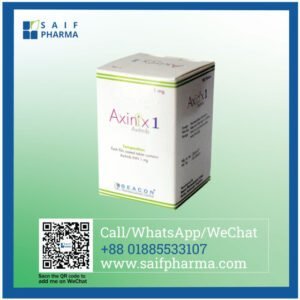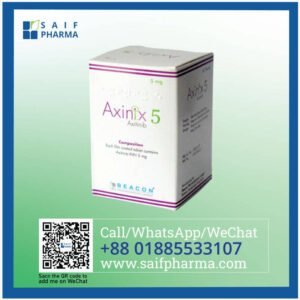Introducing Avapag 20 mg (Avatrombopag), a groundbreaking medication indicated for the treatment of thrombocytopenia. Thrombocytopenia is a condition characterized by a low platelet count, which can lead to increased bleeding or bruising. Avapag 20 mg is an oral thrombopoietin receptor agonist (TPO-RA) that stimulates the production and differentiation of platelets from bone marrow progenitor cells, effectively increasing platelet levels in the body.
When taking Avapag 20 mg, it is recommended to consume it with food. The dosage and administration of Avapag 20 mg vary depending on the specific condition being treated. For thrombocytopenia in adults with chronic liver disease who are scheduled to undergo a procedure, the medication should be taken orally once daily for five consecutive days, starting 10-13 days prior to the scheduled procedure. The dose is determined based on the patient’s pre-procedure platelet count, with adjustments as necessary. The procedure should be conducted 5-8 days after the last dose.
Avapag 20 mg is also indicated for adults with chronic immune thrombocytopenia (ITP) who have not responded sufficiently to previous treatments. The initial daily dose is 20 mg, with dose adjustments made based on the platelet count. The goal is to achieve and maintain a platelet count of at least 50 x 10^9/L to reduce the risk of bleeding. Dose adjustments are recommended after two weeks of treatment or if the platelet count falls outside the desired range.
When using Avapag 20 mg, precautions should be taken regarding thrombotic/thromboembolic complications. Thrombopoietin receptor agonists, including Avapag, have been associated with such complications in patients with chronic liver disease or chronic ITP. It is essential to consider the potential increased risk of thrombosis when administering the medication to patients with known risk factors for thromboembolism. Adherence to dosing guidelines and careful monitoring of patients for signs of thromboembolic events is crucial.
Common side effects of Avapag 20 mg include pyrexia (fever), abdominal pain, nausea, headache, fatigue, peripheral edema, and hyponatremia (low sodium levels). These side effects are generally mild and occur in less than 10% of patients.
Avapag 20 mg should be used with caution during pregnancy, as it may cause fetal harm based on animal studies. It is recommended to advise pregnant women of the potential risks. Breastfeeding is not recommended during treatment and for at least two weeks after the last dose due to the potential for adverse reactions in the breastfed child.
Choose Avapag 20 mg for effective management of thrombocytopenia. Follow your healthcare provider’s instructions and experience the benefits of this second-generation TPO-RA. Safeguard your well-being and prioritize your platelet count with Avapag 20 mg. Consult your healthcare provider today for more information.







